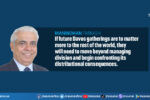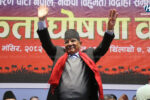KATHMANDU: Recent findings reveal that a mere 27% of Nepal’s population has access to pure drinking water, as reported by the Ministry of Water Supply and Sanitation.
The staggering statistic highlights a significant disparity, with 73% of the population lacking access to clean water due to mineral deficiencies, particularly iron, in water sources.
This issue is exacerbated by deteriorating water pipelines and tanks, some of which are over a century old.
Drinking water sources become increasingly contaminated during natural disasters such as landslides and floods, posing serious health risks to individuals.
Medical experts warn against the consumption of untreated water, emphasizing the potential for waterborne diseases such as diarrhoea, vomiting, jaundice, typhoid, cholera, and hepatitis.
Madhu Timalsena, an Under-Secretary at the Ministry, underscored ongoing efforts to improve access to clean drinking water. However, challenges persist, especially concerning the pollution of water sources due to aging pipelines.
While urging Kathmandu residents to trust the Melamchi drinking water project, Timalsena advised caution when consuming underground water, as it often contains high levels of iron.
Dr. Sher Bahadur Pun, an infectious disease specialist, emphasized the importance of purifying or boiling water before consumption, citing historical instances of cholera outbreaks due to contaminated water.
He warned of the heightened risk of waterborne diseases during the monsoon season, urging vigilance in maintaining water sources’ cleanliness.
Rajendra Aryal, President of the Federation of Drinking Water and Sanitation Users Nepal, highlighted the constitutional provision granting citizens the right to potable drinking water.
However, he lamented the lack of effective implementation of this fundamental right.
Aryal called upon the government to prioritize access to quality drinking water in the upcoming fiscal year’s budget, emphasizing the need for collaborative efforts among all levels of government.
Amid these challenges, the government has committed to achieving Sustainable Development Goal 6, aiming to ensure universal access to safe and sustainable water and sanitation services by 2030.
UNICEF’s country programme in Nepal also endeavors to enhance access to safe drinking water through targeted initiatives guided by the WASH Sector Development Plan.
RSS









Comment